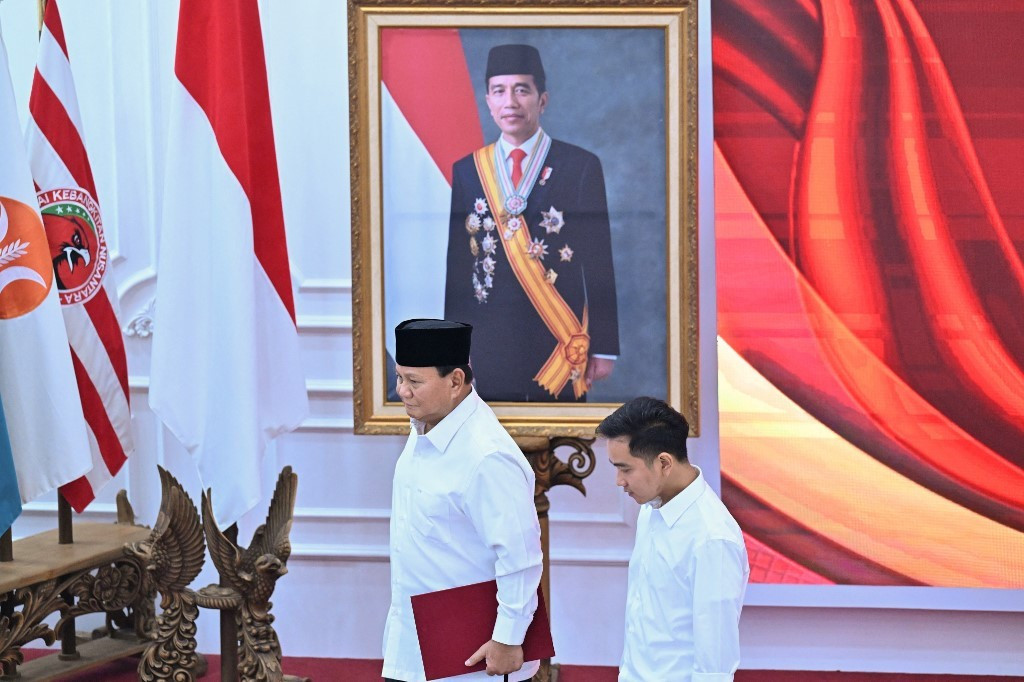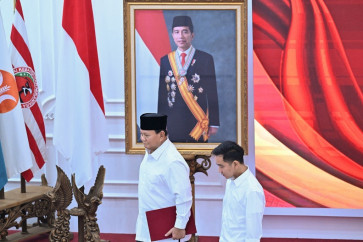Popular Reads
Top Results
Can't find what you're looking for?
View all search resultsPopular Reads
Top Results
Can't find what you're looking for?
View all search resultsAlienation of the intelligentsia under Prabowo’s presidency (part 1)
In the past three years, the intelligentsia has been the most alienated group on Indonesia’s public stage.
Change text size
Gift Premium Articles
to Anyone
A
lthough its efficacy remains afflicted by some doubts, the effort to start talking about the role of the intelligentsia on the public stage today is timely. The fundamental reason is that Prabowo Subianto took over the national government on Oct. 20, 2024. Both the possibility of the intelligentsia reentering the center stage and the rise of Probowo’s leadership, at least theoretically, have gone hand in hand.
Intelligentsia is a synonym for intellectuals: the educated group who pay profound attention to the nature and articulation of political power by putting the values of sincerity, fairness and justice, democracy and human rights as their basic evaluation standard.
In this case, as will briefly be elucidated, it should be stressed that Probawo is the strategic factor in providing the more significant public role of the intelligentsia.
The intelligentsia is a small group of highly educated people – through the intense absorption capacity of liberated modern ideas – who can think from a comparative perspective and intellectually harbor a sense of “empathy.” In his book, The Passing of Traditional Society (1958), Daniel Lerner states that “empathy” is an inner mechanism that nudges one to act efficiently in a changing world. In this context, juxtaposing the intelligentsia and Prabowo would create a dialogical climate simply because both of the parties, in terms of erudition, have been in the enlightened stage.
It seems that in the past three years, the intelligentsia was the most alienated group on Indonesia’s public stage. The peak of this alienation was marked by the failure of the ruling elite to heed the warning of professors from top universities across the country concerning the fraud of the Constitutional Court’s October 2023 decision, which altered age limit rules for presidential and vice presidential office candidacy.
Although its effect is not as dramatic as explained by Herbert Feith in The Decline of Constitutional Democracy in Indonesia (1964), the court’s decision changed the power mentality and pushed further the decline of ethical standards in the Indonesian political game. It is in the changing power mentality that a new political map is created based more on pragmatism than fair and ideal intellectual considerateness.
To some extent, this alienation is possible given the intelligentsia's structural position in the post-imagined communities era. The imagined communities, a phrase coined by Benedict Anderson in 1984, can be understood as the collective emergence of a new societal group based on shared ideal thought and consciousness formed by the high quality of material readings offered by modern printings. Anderson links these shared ideas and consciousness with the creation of the national consciousness as the antithesis of illiberal and tyrannized colonialism, feudalism and traditionalism.



















